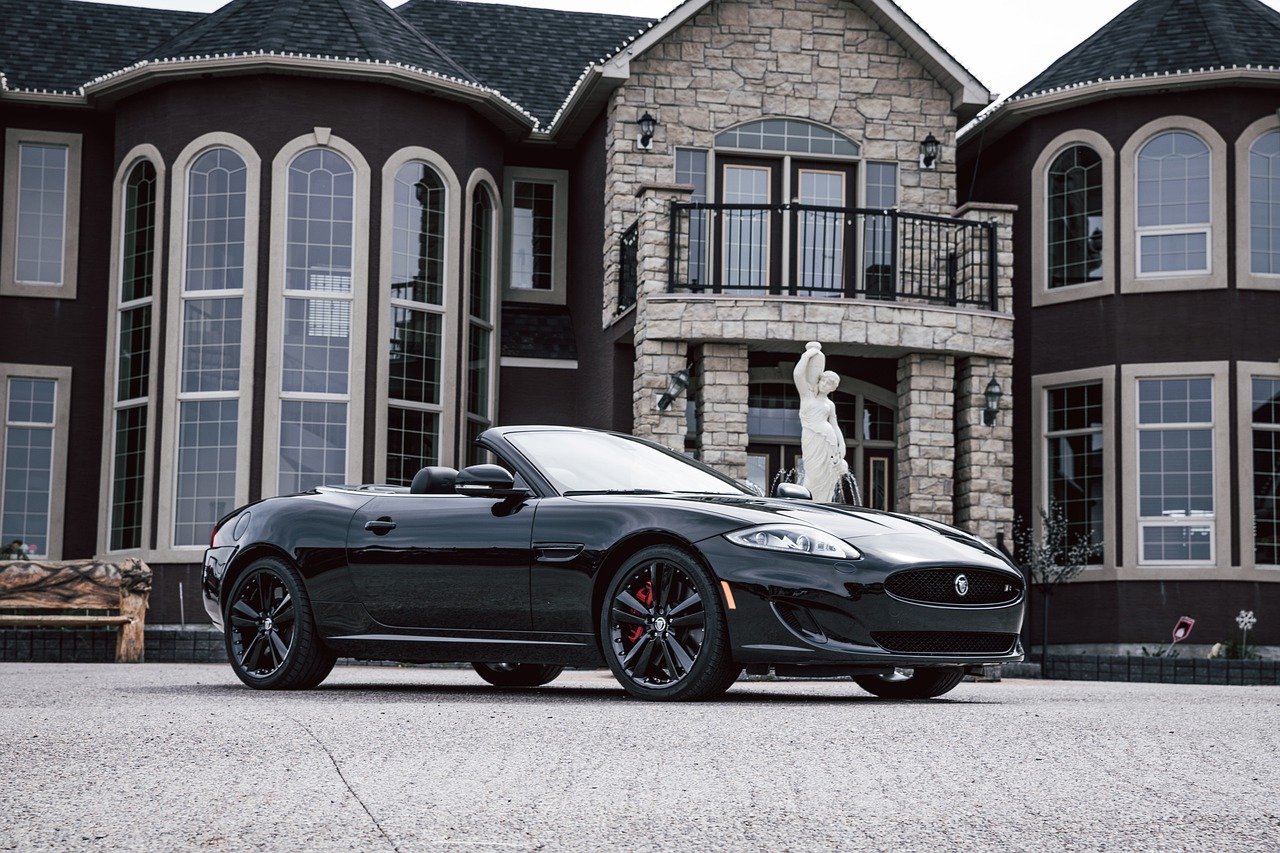WHY HIGH-EARNING GUYS ARE DETERMINED TO PROVE YOU’RE NEVER TOO RICH TO BE BROKE.
Sober runway shows. Austere white parties. Plenty of people in the spotlight seem to have gotten the message about the economy. So you’d think that, if only to follow fashion, the last of the big spenders—guys who wouldn’t hesitate to whip out a black Amex for another Patek Philippe, a case of 1995 Château Margaux, or a last-minute trip to Fiji—would maybe, perhaps, possibly, consider scaling back.
You’d be wrong. North America may have lost nearly 23 percent of its millionaires last year, but that doesn’t mean those in the top tax brackets are cutting costs or corners, or even trying to stay solvent. Through the economic doldrums, a sizable contingent of the high-earning set is defiantly dropping cash—whether to emphasize that they are among the truly wealthy, to reward themselves at the end of their long climb up the class ladder, or to give the middle finger to the system that spawned their high-roller ways.
While it may bear the hallmarks of obliviousness, theirs is a decidedly conscious form of consumption. “It fulfills a need,” says Paul (all names have been changed), 43, an academic who specializes in antiquities and whose household income, thanks largely to his partner’s law practice, is around $2 million a year. “The least self-reflective answer is you do it because you can. There’s a perilous, exciting feeling to having zigged when other people zagged.”
Paul and his partner divide their time between Hong Kong, Manhattan, and the Hamptons, and get a thrill out of what some might see as fiscally irresponsible splurges—what Paul calls, only half in jest, his “evil, evil ways.” Merely traveling between their three households is a huge expense. “We don’t do hotel stays below $1,000 a night,” he says. “We only fly business class to Asia and back.” Then there are the actual vacations and posh long weekends—like the $10,000 snow-shoeing jaunt to Twin Farms in Vermont.
What’s more, they’ve been renovating their Hamptons home for two years. The cost: $1 million and counting. “We began with the concept of adapting existing spaces, and somehow along the way we’ve built a contemporary addition with glass walls,” Paul says. “In every case where we could have scaled back, we upgraded instead.”
Americans have a complicated relationship with stubbornly profligate types like Paul. Having clung to our Horatio Alger mythology as if it were an overdrawn Visa Signature card, we want to believe that someone can go from rags to riches, and from riches to more riches—and one of the ways to give the appearance of financial ascent is to spend aspirationally. Having achieved Richie Rich status, guys like Paul and his partner hold fast to their all-American success stories—afraid that stepping down the socioeconomic ladder means not only forgoing Loro Piana sweaters but also disappointing those a rung or two below who hold them up as models of prosperity.
Jon, 30, had been making a steady climb into the world of luxury as a commercial-real-estate broker in New York City. Until this year, he had been earning in the high six figures, but his commissions nose-dived with the market. His love of the finer things, however, only grew. “You upgrade to Tod’s, and you don’t want to make the step back down,” he says. “The first couple suits I had were from small shops in Soho that I would get on sale. Then I started buying Theory suits, which are between $750 and $1,000. Then I bought a Paul Smith Luxury suit, which was $2,000. I’d buy Hermès ties instead of Façonnable. My first watch was a Baume & Mercier, which was around $2,000. I’d see people who had bigger and more expensive watches, so my next watch was $6,000. And my last watch was $10,000.”
Jon still has the means to live well, if a little more modestly than he’d like, but he’d rather heedlessly spend his way into the red. And he has company. “We’ve literally had people come in to see us with their tax work that shows they made $5 million last year—and they have no savings,” says Domenic DiPiero, president of Newport Capital Group, a New Jersey wealth-management firm. According to his estimates, he’s counseling 25 percent more millionaires who live paycheck-to-paycheck now than he was a year ago.
Being frugal is a buzz-kill; spending blindly, especially these days, is a buzz. “There’s an addictive quality about it,” Jon says.
Then there’s the issue of simply proving you have a place in this rarefied world of the moneyed. Who wants to be the schmuck who panicked and ditched the Bugatti for a Beemer? As Paul puts it, “A BMW convertible feels like a sober Prius in an East Hampton parking lot.” Similarly, Jon found that traveling to places like Las Vegas and Miami—where “Go for broke!” is practically a battle cry—is particularly pernicious. Spending means being one of the guys, and abstaining means getting left behind. “It’s not good enough that you’re staying at the best hotel. It has to be ‘I’m in the Tower Suite at the Wynn.’ Then you go to the pool, and it’s another $300 for a cabana—and you want the good cabana, not the one on the second floor where no one can see you.” The same kind of compulsive one-upmanship exists in all aspects of the overspender’s life: stocking the cellar from the right vineyards, snagging a set of custom-made Bob Kramer knives, buying his girlfriend a Birkin for Christmas.
Many overspenders are driven more by self-worth than net worth, believing they attained their lofty perches because they are innately deserving. Their bank accounts may be shrinking; their self-regard isn’t. “They think they can’t be expected to handle money in the same way,” says Jerrold Mundis, a financial counselor who works with affluent individuals and is the author of Earn What You Deserve. Beyond that, they have no desire to be fiscally responsible—that would shatter the image they’ve so carefully cultivated. Mark, a 41-year-old executive at a high-end home-furnishings company, fell into debt despite his six-figure salary because, as he says, “I’m constantly treating myself. I don’t believe in self-sacrifice—I have a sort of moralistic self-righteousness that I deserve good things. And because I’m surrounded by luxury all day, I know what’s good quality and what isn’t.”
Likewise, Paul views his Hamptons home as a monument not to wealth but to hard work. “It’s the physical crystallization of a certain kind of dream,” he says. But he admits he’s questioned the wisdom of his ways. “There’s an element of total insanity. It’s been a leap into the void. I keep saying to my partner, ‘Can we really do this?’ It’s such a lot of money, and it’s actually not necessary.”
Having watched a certain Orson Welles film on a recent flight from Hong Kong to New York, Paul had a realization. “There’s something Citizen Kane–like about why you surround yourself with all this stuff,” he says. “I thought, when we die, someone’s going to inventory everything.” Depending on your outlook, that can prompt you to reevaluate your priorities—or to buy yourself a shiny new Rosebud.






